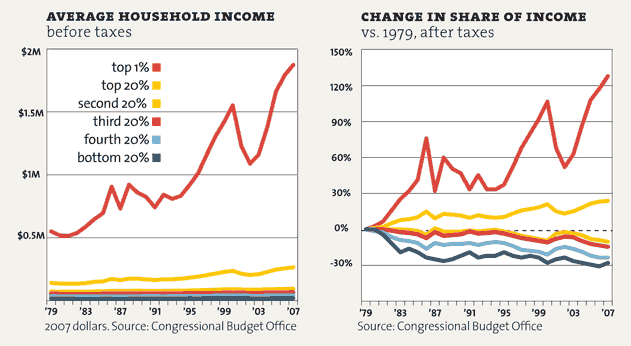- Thread starter
- #21
Does it make sense to you to pursue, as a society, policies that benefit the greatest numbers of people?
It depends on how you measure the greatest good for the greatest number. For example, tax breaks for the rich means that there will be more private investment capital available which will foster economic growth and more jobs, so by benefiting the rich, everyone benefits. On the other hand, increased social welfare benefits mean more public debt or more taxes and less private capital available for investment, meaning slower economic growth and fewer jobs. So in these examples, policies that seem to only benefit a few in fact benefit everyone, and policies aimed at benefiting everyone actually hurt everyone.
Do you seriously still believe that? If tax breaks for the wealthy drove job growth, Bush II would have been able to afford his wars.
Think about it - Which factory needs more workers?
The one selling refrigerators to a market of 6 million people with an income distribution graph showing a nice bell curve and a robust middle class, or the one selling refrigerators to a market of 6 million starving peasants and one king?


 It ain't rocket science, y'all.
It ain't rocket science, y'all.

